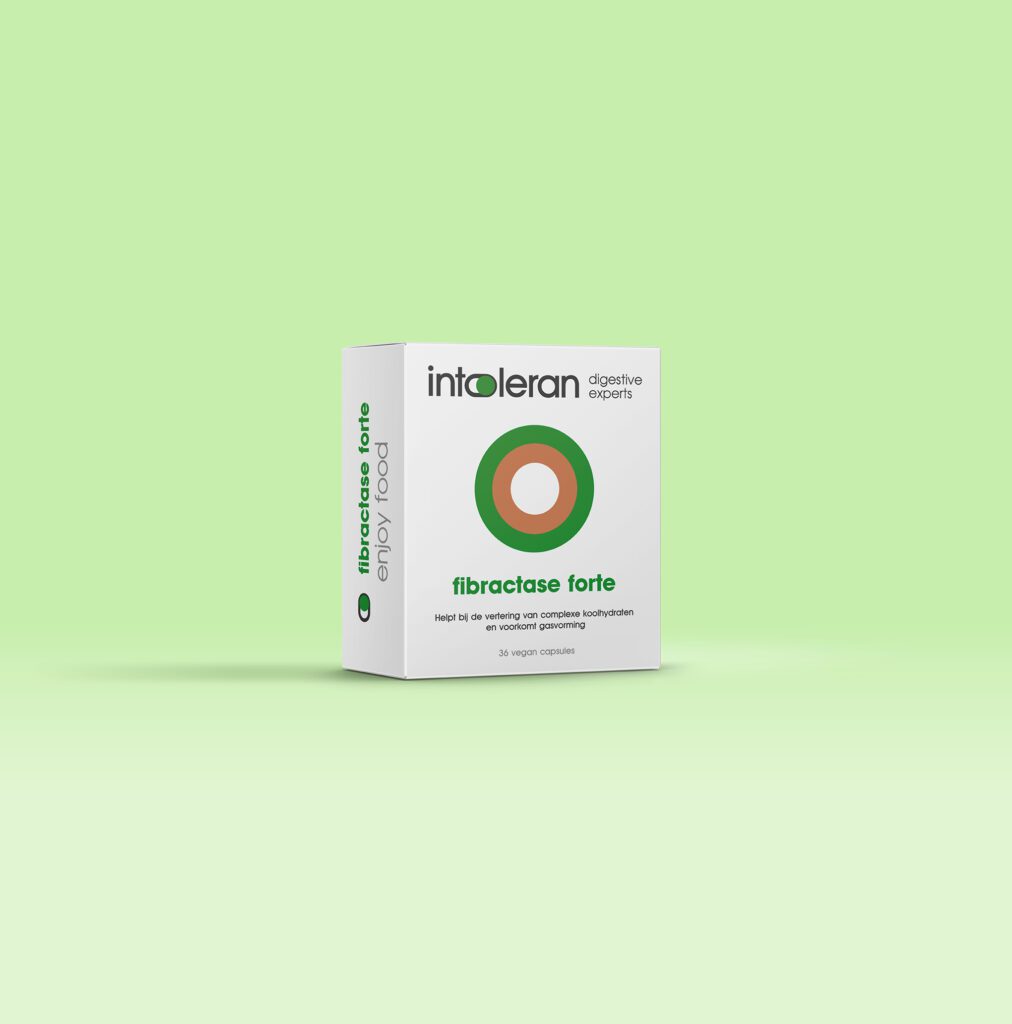Fructans and galactans are complex carbohydrates that cannot be digested in the small intestine. When these carbohydrates reach the large intestine undigested, they pose a risk factor for the development of gas in the intestines in some people.
what are fructans and galactans?
Fructans and galactans are complex and thus difficult to digest carbohydrates. These carbohydrates cannot be broken down in the small intestine and leave the body via the colon. In the large intestine, these undigested carbohydrates are fermented, during which gas is released and moisture is attracted, among other things.
Fructans and galactans may be a risk factor in some people for the development of gas in the intestines.
There is sometimes some confusion about the difference between fructans and glutens.
Glutens are proteins found in various cereal products such as wheat, rye, spelt, and barley. Fructans are also found in wheat products, which is why glutens and fructans can be confused. Fructans are also found in various fruits and vegetables, these products do not contain gluten.
which foods contain fructans and galactans?
Fructans and galactans occur naturally in many foods, such as vegetables, fruits, legumes, and cereal products. There are foods that contain only fructans or only galactans and there are foods that contain both.
Foods rich in fructans are:
- Garlic
- Onions
- Leeks
- Wheat
- Apricots
- Grapefruit
- Nectarines
Foods rich in galactans are:
- Brown beans
- Chickpeas
- Peas
Foods rich in both fructans and galactans:
- Cashews
- Pistachios
- Soybeans
- Split peas
In addition to the above examples, there are many other foods that contain fructans and/or galactans. In Monash University’s Low FODMAP app, you can easily check which foods contain fructans and galactans.
how do you deal with fructans and galactans?
If fructans and galactans pose a risk of forming gas in your intestines, there are fortunately a number of things you can do about this. One of the things you can do is adjust your diet.
By limiting the consumption of foods rich in fructans and/or galactans, you can reduce the risk of gas. It can vary from person to person which types of food pose a risk of gas formation. For some people, these are only fructans in wheat, while for others, fructans in garlic and onions actually pose a risk.
Finding out which foods pose a risk for you is often quite a quest. But if all goes well, you will eventually get to know your body and know which foods pose a risk of forming gas for you. If you find this difficult, a dietician can help.
The digestive enzyme Alpha Galactosidase helps digest complex carbohydrates such as fructans and galactans, thus reducing the risk of gas formation.

Alpha Galactosidase
The digestive enzyme Alpha Galactosidase helps digest complex carbohydrates such as fructans and galactans, reducing the risk of gas formation. Alpha Galactosidase can be found in the supplement Fibractase forte.

free advice from our dietitians
Let us help you with your digestive complaints, like we’ve helped many others. We will help you find the solution that fits your needs best.
Fill out our contact form and we will get back to you


 NL
NL IT
IT FR
FR ES
ES AU
AU US
US SG
SG